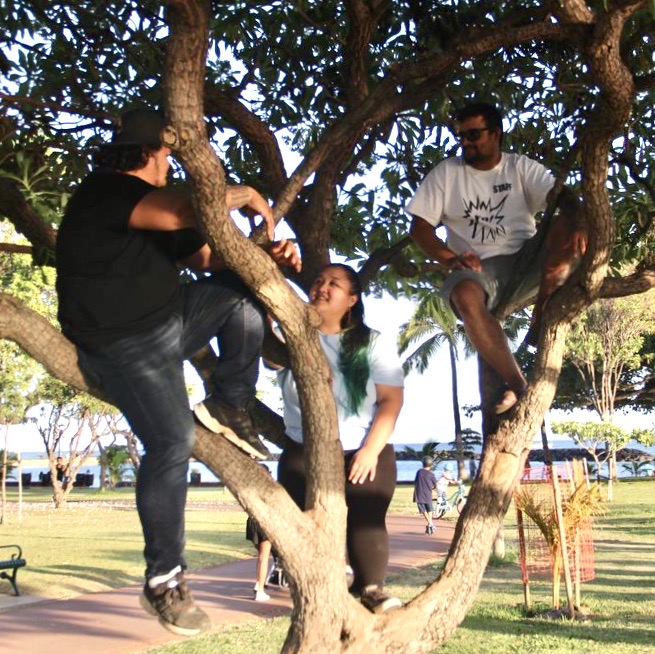
Guide on the Side (GOTS) a new program administered by Hale Kipa in partnership with Waikiki Health and EPIC Ohana Inc., seeks to help homeless young adults by emphasizing “youth voice and youth choice.”
The premise of the program, which is funded by a grant from the U.S. Department of Housing and Urban Development’s Youth Homelessness Demonstration Program, is to give young adults consistent support and case management through different programs. It also allows homeless youth to decide which aspects of their lives they want to focus on improving, rather than dictating the terms of their participation.
“Most programs say that participants must do this and that, and they’re not going to want to be involved in those programs,” said Glenn Perreira, a GOTS case manager from Hale Kipa. “We try to be more free and open.”
Perreira knows firsthand what some of these young adults are experiencing, as he was homeless as a young adult. At the time, he says he didn’t trust most adults and especially didn’t want to follow someone else’s prescribed plan for him.
To be eligible to participate in GOTS, young adults must be living on the street or in a shelter and be between the ages of 18 up to one day before their 25th birthday. The guides are available to help them with multiple services such as obtaining housing or healthcare, graduating from high school, acquiring a driver’s license, and even legal assistance if needed.
“Some aren’t ready for housing,” said Alika Campbell, a program coordinator from Hale Kipa. “So we let them decide when they’re ready. We don’t force them to do anything. When they’re ready to take that next step, we assist with that goal.”
Most of the client referrals come from YO! (Youth Outreach Drop in Center), which is a collaboration between Waikiki Health and Hale Kipa. In addition to two adult guides, the program will eventually employ a peer mentor between the ages of 18 and 24 who has experienced homelessness and can relate to the clients’ experiences. The mentor will meet clients in person and “talk story.” Both the guides and the youth mentor will continue to work with each young adult on life skills training even after they have a place to live.
The reasons that young adults become homeless are complex, but some of the most common circumstances are abuse or neglect, substance abuse, or intergenerational poverty. In some cases, the young person may have been kicked out of their home for being LGBTQ or left by choice because their home was too crowded.
One current GOTS client became pregnant and lost her spot in a clean and sober residence. Because she was not raised in Oahu, she has no family to help her. Her main goals are to find a safe home where she and her boyfriend can raise their baby, obtain an identification card, identify childcare, and secure employment. The client’s guide introduced her to the Indeed job search website where her boyfriend has already found a job and helped both of them get appointments for identification cards.
“This program can and will help you get to where you want to go and be as long as you want it and work with them to reach your goals and dreams,” she said. “The guides are good at communicating and they make me feel loved and cared about.”
Currently, there are 15 young adults in the program, including eight men and seven women. In working with participants, the guides meet them wherever they are residing, whether it be in a park, on the beach, or anywhere else. They provide clients with cell phones for which to communicate but are also reachable through Instagram and Facebook if the participant loses their cell phone or prefers not to use it.



